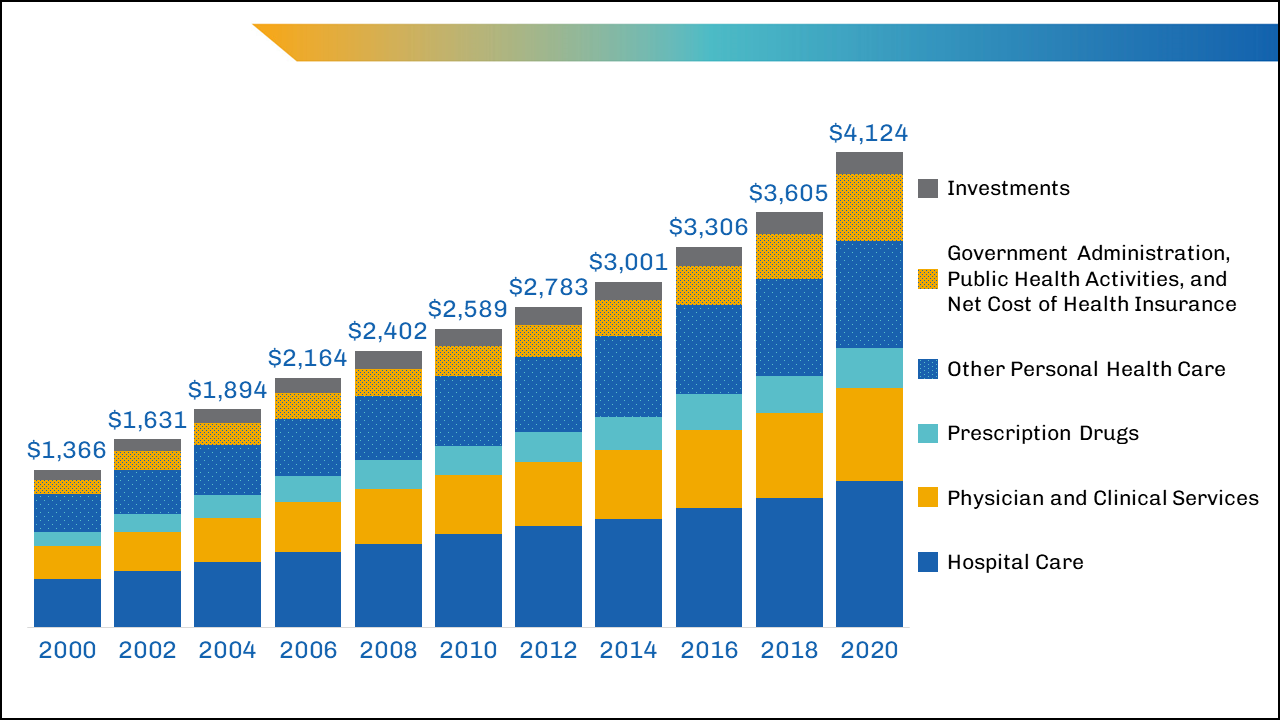Top Healthcare RCM Techniques for Better Financial Efficiency
Recognizing the Function of Health Care RCM in Enhancing Monetary Efficiency and Person Contentment
Browsing the ins and outs of Medical care Income Cycle Monitoring (RCM) is important for attaining ideal financial performance while all at once boosting patient satisfaction. As we discover the transformative potential of RCM, inquiries about its tactical application and future advancements bid, encouraging understandings that might redefine market criteria and person experiences alike.

Trick Parts of RCM
In the facility landscape of health care, Revenue Cycle Monitoring (RCM) is crucial in ensuring financial security and functional effectiveness. Person registration and eligibility confirmation are fundamental steps, making certain that precise client details is captured and insurance policy protection is verified prior to solutions are made.

Charge capture is an additional crucial part, including the precise recording of services provided to individuals. It ensures that all billable solutions are represented, consequently making the most of revenue capacity. Simultaneously, medical coding translates patient experiences right into standardized codes, which are important for payment and governing compliance.
Claims submission and monitoring adhere to, involving the preparation and entry of insurance claims to payers. This process needs meticulous focus to detail to decrease mistakes and stop delays. Denial management is a positive strategy to attend to and deal with denied insurance claims, guarding income streams.
Lastly, repayment uploading and person collections finish the cycle, guaranteeing settlements are accurately recorded and exceptional equilibriums are sought. With each other, these components develop a durable structure that supports the operational and economic wellness of healthcare companies.
Influence on Financial Efficiency
Effective Earnings Cycle Monitoring (RCM) substantially influences a health care organization's economic performance by maximizing capital and reducing revenue leak. RCM encompasses the thorough billing and collection processes that guarantee doctor efficiently handle their financial transactions from patient registration to last payment. By streamlining these procedures, organizations can lessen rejected cases, accelerate settlement cycles, and boost general monetary wellness.
Monetary performance is enhanced with precise monitoring of billing procedures, which includes precise coding and timely entry of insurance claims. This decreases the probability of case denials and beings rejected, which can considerably hinder income flow if not attended to promptly. Furthermore, integrating advanced modern technology services assists in real-time monitoring of claims and monetary metrics, giving health care administrators with the tools essential to make informed critical choices.

Enhancing Individual Fulfillment
While maximizing economic efficiency is an essential goal of Revenue Cycle Management (RCM), it also plays a critical function in boosting client satisfaction. By minimizing administrative concerns, RCM allows health care service providers to focus more on patient treatment, which straight improves client fulfillment.

RCM additionally improves person satisfaction via effective interaction. By keeping a detailed data source of patient details, RCM assists in improved communication between individuals and medical care service providers, guaranteeing individuals feel educated and valued. This openness and access promote a positive client experience. Overall, efficient RCM execution not only increases financial outcomes yet likewise substantially adds to a patient-centered health care environment.
Methods for Efficient RCM
Attaining reliable Earnings Cycle Administration (RCM) needs medical care organizations to execute a collection of calculated techniques that guarantee monetary stability and functional effectiveness. One crucial method is the adoption of technology-driven check it out services, such as incorporated software systems that streamline invoicing procedures, reduce mistakes, and boost information precision. These systems make it possible for real-time monitoring of economic metrics, enabling timely identification and correction of inefficiencies.
Another strategy is the standardization of procedures throughout the income cycle. Healthcare RCM. This entails establishing constant plans for person enrollment, insurance coverage verification, and asserts processing. By guaranteeing that all staff comply with these standards, companies can reduce inconsistencies and expedite settlement collections
Team training and growth also play a critical role in effective RCM. Well-trained personnel can successfully browse complicated invoicing procedures and laws, reducing rejections and improving cash flow. Regular updates on plan adjustments and best methods aid keep a experienced and proficient workforce.
Future Trends in RCM
As healthcare companies improve their Profits Cycle Administration (RCM) methods with innovation and standardized procedures, interest is currently transforming in the direction of the future patterns shaping this crucial area. One significant pattern is the assimilation of man-made knowledge (AI) and machine discovering to automate complicated tasks, such as cases processing and predictive analytics. These modern technologies are anticipated to reduce mistakes, speed up transaction times, and give data-driven understandings for far better decision-making.
In addition, the shift in the direction of value-based treatment remains to affect RCM techniques - Healthcare RCM. Doctor are anticipated to significantly concentrate on client outcomes and contentment, necessitating RCM systems that can suit new repayment versions. This change will article certainly require more comprehensive data collection and evaluation to effectively measure and report on performance metrics
Interoperability is an additional arising concern, as smooth data exchange in between inconsonant systems becomes crucial. Boosted interoperability will facilitate even more accurate person details sharing, decreasing administrative worries and improving the patient experience.
Conclusion
Healthcare Profits Cycle Management (RCM) substantially affects both financial efficiency and person satisfaction by enhancing invoicing processes, ensuring exact coding, and allowing timely claims entry. Efficient RCM reduces revenue leak and accelerates cash money flow, decreasing case rejections and speeding up settlements. This effectiveness cultivates count on and contentment amongst people. RCM systems also help with better communication and versatile settlement options, creating a patient-centered experience. Future RCM fads will likely concentrate on click reference further integrating innovation to improve these advantages.
Browsing the intricacies of Medical care Revenue Cycle Monitoring (RCM) is necessary for attaining optimal financial efficiency while at the same time boosting individual complete satisfaction. RCM incorporates the thorough payment and collection procedures that ensure health care companies efficiently manage their monetary deals from person enrollment to final settlement. By minimizing administrative burdens, RCM permits health care carriers to focus a lot more on person treatment, which straight boosts patient complete satisfaction.
By keeping an extensive data source of individual information, RCM helps with boosted interaction in between people and health care carriers, ensuring people really feel educated and valued.Health Care Revenue Cycle Monitoring (RCM) considerably affects both monetary efficiency and patient contentment by maximizing payment procedures, making sure precise coding, and enabling punctual claims submission.